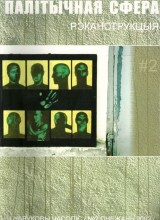
Review "Адкрытае грамадства"
review of: Socio-analytical magazine "Адкрытае грамадства" Nr.1, vol.12, 2002
More...We kindly inform you that, as long as the subject affiliation of our 300.000+ articles is in progress, you might get unsufficient or no results on your third level or second level search. In this case, please broaden your search criteria.

review of: Socio-analytical magazine "Адкрытае грамадства" Nr.1, vol.12, 2002
More...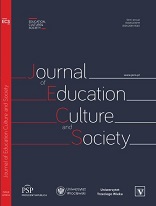
The article analyses models of administrative supervision of local self-government in the Baltic States (Latvia, Lithuania, Estonia) highlighting the advantages and disadvantages of these models. The research done in this article defines the theoretical concept of administrative supervision of local self-government; gives an overview of the legislative framework underpinning the key administrative supervision bodies of local self-government in the Baltic States; discusses the issue of legal regulation and the present state of administrative supervision over local self-government units in the Baltic States; gives some theoretical and practi-cal suggestions to develop this field in the Baltic States. The research methods employed in preparation of this article are theoretical methods of analysis of scientific literature and sources, legal acts and documents as well as comparative and logical analysis, induction and generalization. Three Baltic States similar in their area, number of inhabitants, and gov-ernmental peculiarities have been chosen for the analysis.
More...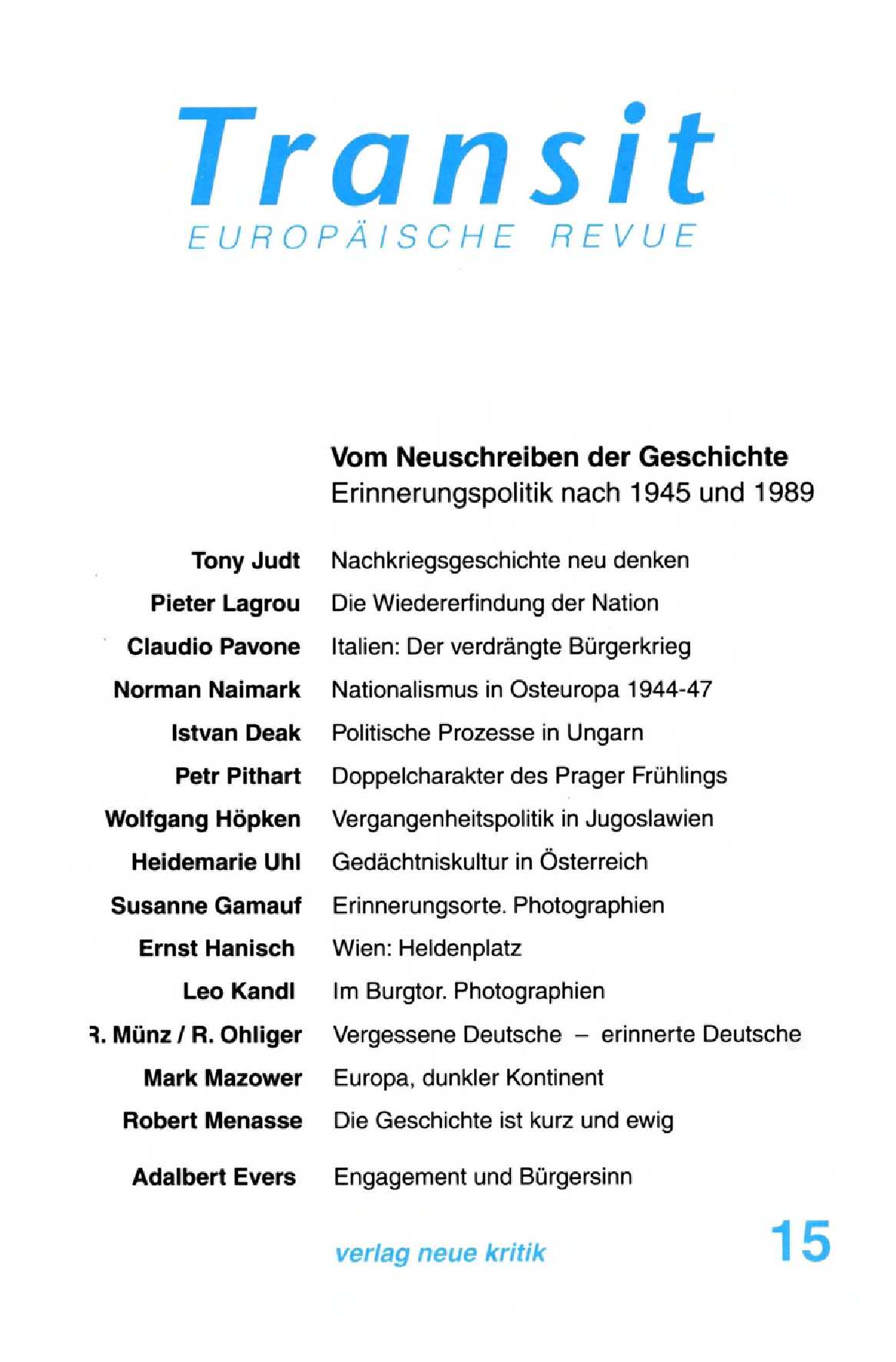
Der Ruf nach sozialem Engagement ist zum Programmpunkt jeder politischen und sozialen Organisation geworden. Wohlfahrtsverbände bescheinigen sich, in dieser Angelegenheit unersetzlich zu sein; Projekte und Selbsthilfegruppen begründen damit ihre Förderungswürdigkeit; der Bundespräsident macht sich zum Mahner und Fürsprecher; einige Politiker und Publizisten fordern ein soziales Pflichtjahr, und die Erfindung der »Bürgerarbeit« durch Jeremy Rifkin (1995) oder Ulrich Beck (1997) bringt neue Akzente in die Debatte um die Zukunft einer Arbeitsgesellschaft, die offenbar immer weniger in der Lage ist, ihr Versprechen auf soziale Teilhabe in Form der allgemeinen Integration in das System der Erwerbsarbeit umzusetzen.
More...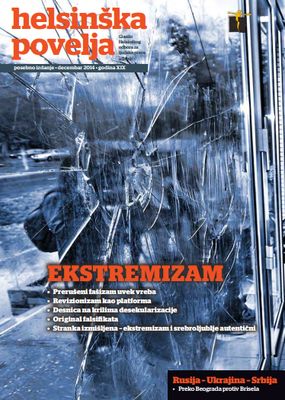


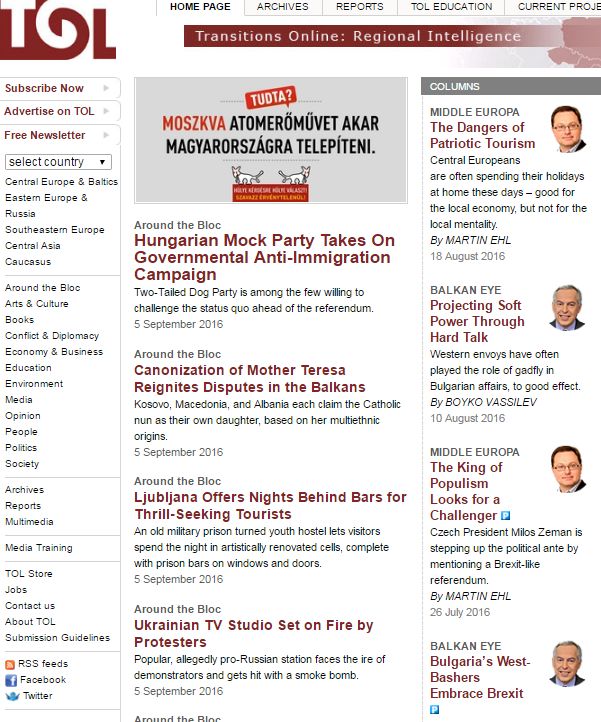
The rush for the ‘white gold’ of Siberia is devastating fragile landscapes and furthering the illegal trade in elephant ivory.
More...
This special issue of Studies of Transition States and Societies focuses on youth political participation in Estonia. The articles explore different dimensions of participation, providing examples of how politics is practiced by young people in a society that has undergone a relatively recent and substantial social, economic and political transformation: the shift from being an integral part of the Soviet Union to full membership of the European Union. This transition is reflected in changing patterns of activism among Estonian youth and the nature of the issues with which they engage, with participation influenced by, one the one hand, the legacies of the communist period and, on the other, the challenge of living in contemporary Europe.
More...


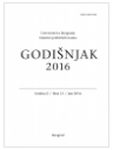
In this article the author tends to find a parallel and relations between the development of antiterrorism efforts of the European Union and it’s care for protecting fundamental rights. While the development of european standards concerning right to privacy and protection of personal data has been constant and consistent, EU’s antiterrorism fight has been developing slowly and discontinuosly, mainly guided by critical events such as large scale terrorist attacks. The decade of peace between 2005 and 2015 has given increase to voices emphasizing human rights problems of antiterrorist measures. After the attacks in Paris, however, they have been sidelined and mass surveillance programmes that were until then almost unimaginable have suddenly gained strong incentives.
More...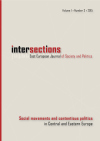
Drawing on the framing perspective in the study of social movements, the article discusses the possible links between the concept of anti-politics developed by Czech, Hungarian, and Polish dissidents in the 1970s and 1980s, and formal and informal initiatives of the East-Central European civil societies nowadays. It is argued that the historic notion of anti-politics should be applied in the contemporary research on social movements and on any other form of civil activism in the region since it has immense analytical and methodological importance. It allows researchers to recognize different traits of social activity and civil society specific to East-Central Europe, and explain them in a more comprehensive manner. Referring to the historical concept of anti-politics enables the researchers to identify and appreciate characteristic regional discourses, repertoires, and forms of protest in historical and contemporary social movements and to perceive the continuity between them. It also helps identify the mechanism of civil activism. The article’s argument is based on the writings of three dissident movement leaders, namely Vaclav Havel, György Konrád, and Jacek Kuroń. It is being explained how the concept of anti-politics worked as a collective action frame in the 1980s, and the examples of its legacies within the contemporary formal and informal civil activism are given.
More...
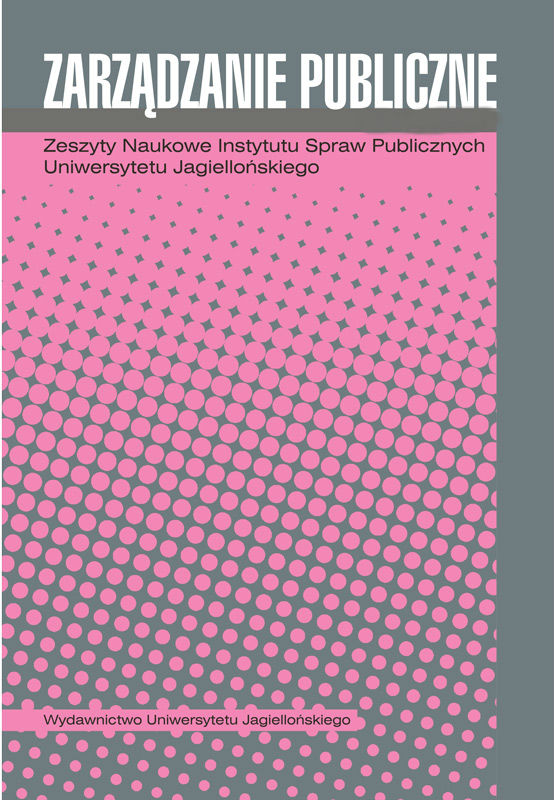
The role of the third sector, which affects the development of civil society, is greater than before. At the same time is observed growth of the need for responsible use of management techniques in the crisis economic environment, which return to ethical values. Despite many differences between market and non-governmental actors, turbulent economic situation affects more intense relationships of the business sector and NGOs. The article presents conditions to support cross-sector cooperation in assessing the significance of the development of the relationship between the above mentioned entities. Author submits proposal of structuring by selection of important cooperation between business and NGOs theories and results from own study, conducted between 2013 and 2014 (grants from the WUT Faculty of Management). Aim of the paper is to find reasons for cooperation between business and NGOs as indispensable element in sustainable management.
More...
Road safety is a very important problem undertaken by various actors of both an international and local level. An important role in this area play non-governmental organizations, whose activities result from social motives. The body of the article summarizes and presents the international non-governmental organizations of different scope and nature of the action and shows the extent of their efforts to road safety. Studies show that many new organizations start their activities in the field of safety and security. As regards to the transport issues very often it is road safety because almost everyone is a road user: a pedestrian, a cyclist, a bike rider, a car driver or a passenger of any vehicle. Therefore road safety concerns the vast majority of a society. Furthermore the non-governmental organizations are matched very closely to the actual needs in the field of road safety due to their scale and specialization and can respond to the social expectations faster than local, regional or national administration. As a result the non-governmental organizations play a significant role in the design and implementation of programmes to improve road safety.
More...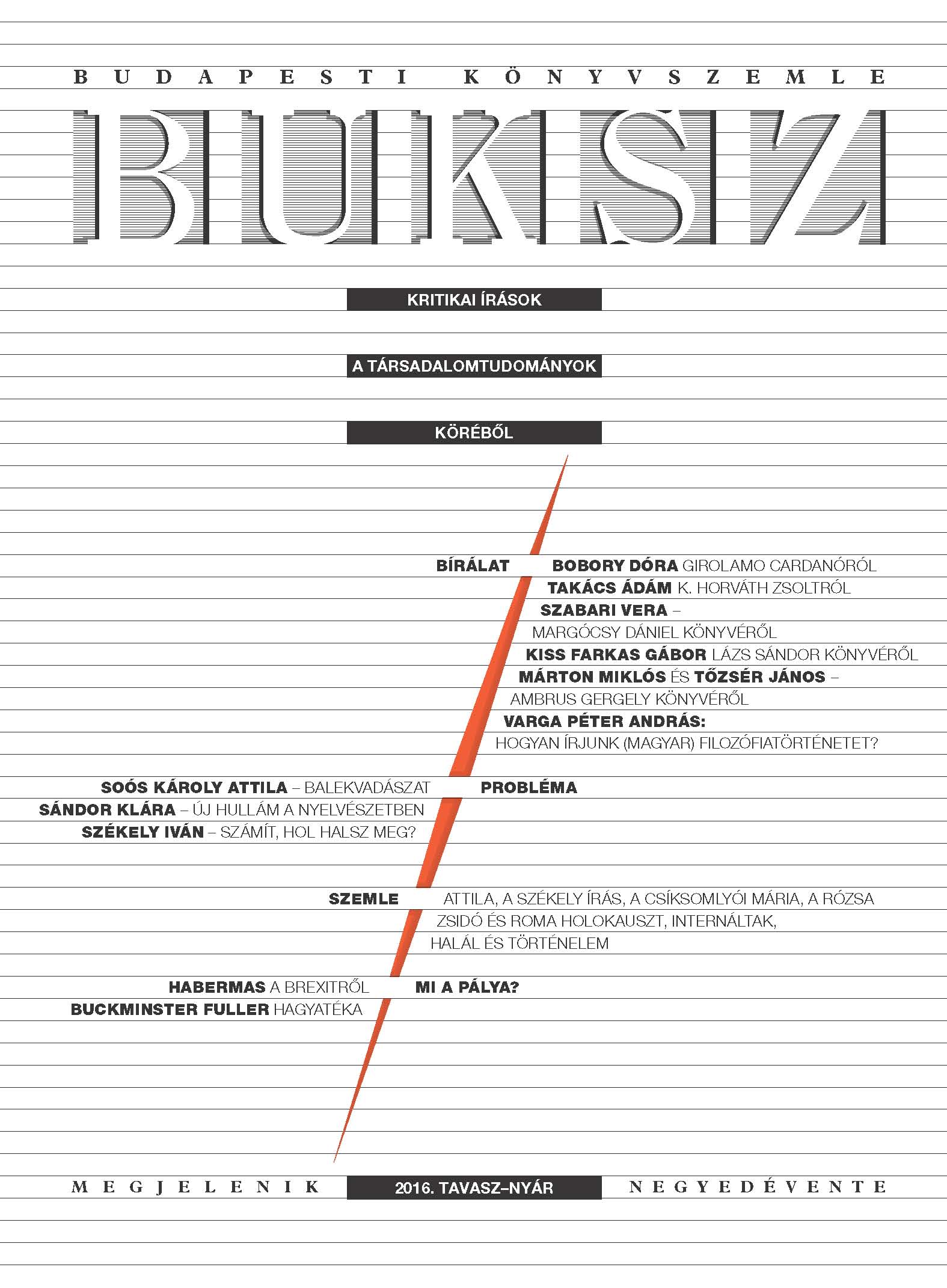
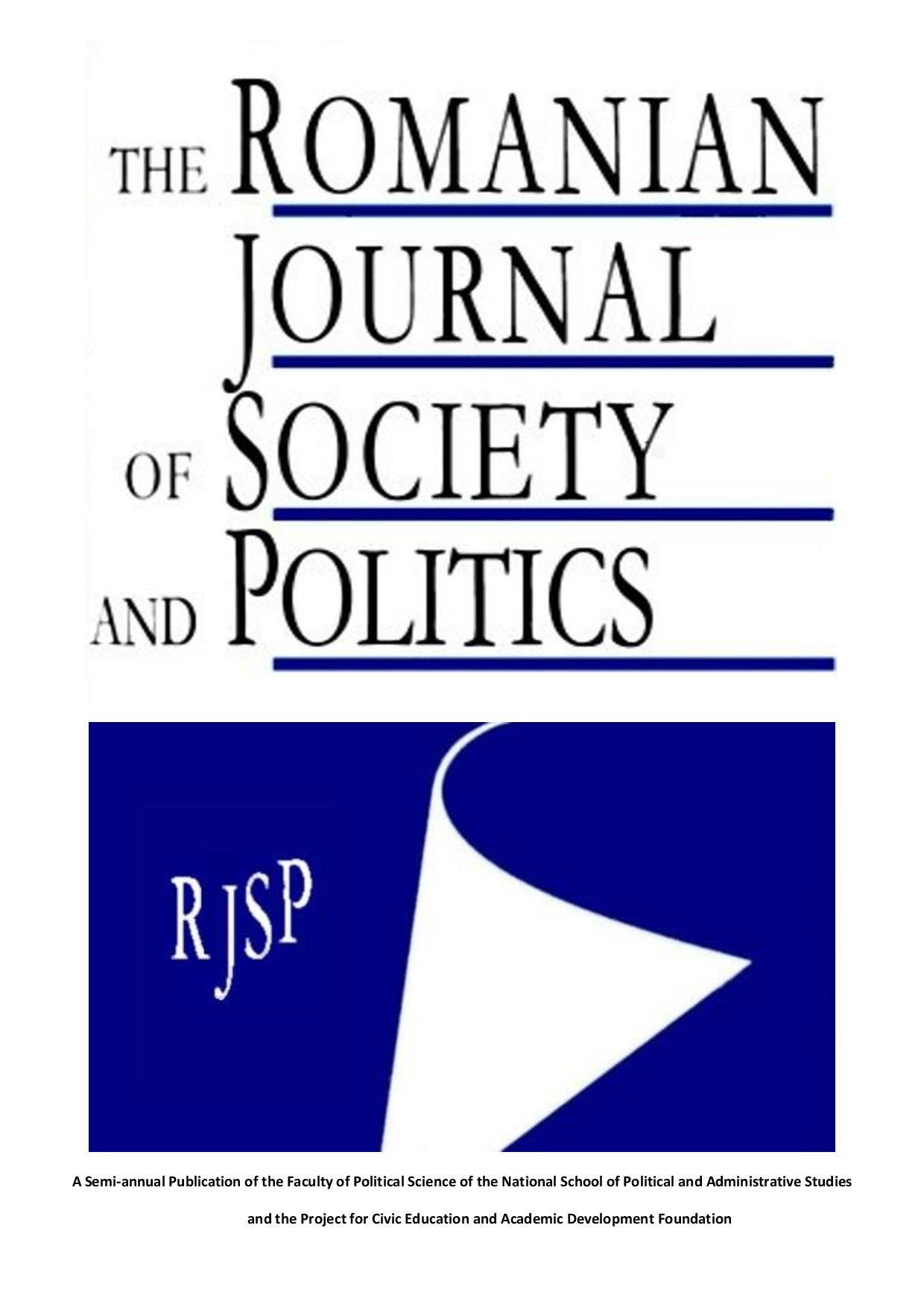
How the relationship with the environment constituted an issue in Romanian contemporary art approached by women and male artists before 1990 is relevant for the analysis of the consequences on the process of awareness towards the possibilities of an eco-feminist practice and theory in post-communism. The cases of women artists like Ana Lupaş and Wanda Mihuleac, two leading artists who influenced a generation, illustrate an interest towards environmental aspects, but how their works functioned in the context of a reality marked by ideologies, reality in which most of the artists who engaged in alternative works to the official art withdrew in their studios or private houses, is to be questioned. If we find some traces of land art and environmental topics before 1990 in Romania, the contemporary situation in the last decades, with a few exceptions that are to be discussed, seems to be reflecting a void. How can this absence be explained in contemporary art and theory taking into account socio-political as well as aesthetic and conceptual aspects? What was the motor of working with the environment during the communist regime in the case of a few women artists but also in the case of male artists and mixed artists groups, and what is missing today for an artistic mobilization towards an environmental dimension? And last, but not least, if feminist art is more and more penetrating the field of art practice and theory in Romania what could explain the minor interest for an environmental agenda in the context of a so-called globalized world that is facing an imperative need to face global warming, climate changes, water and food sustainability or the ethics of consumption?
More...
The most substantial environmental mobilization in post-communist Romania is represented by Save Roşia Montană, a movement that opposes the biggest European open pit, cyanide-based gold and silver extraction project proposed by Gabriel Resources Ltd., a multi-national mining company based in Toronto. Over the last 12 years, it has become the most significant Romanian environmental conflict, with a significant national and international impact. This paper is an exploratory investigation into models of contention and participation of civil society in the Roşia Montană environmental conflict.
More...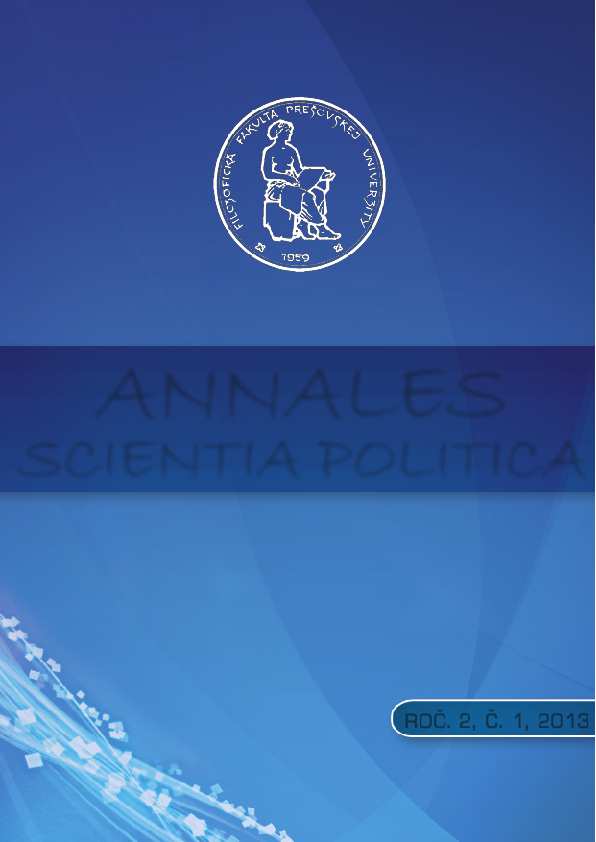
The present study provides partial results of the grant project focused on the perception of ideological values and political beliefs of FF PU students in Prešov. This study synthesizes some of the results of similar surveys and probes of youth in Slovakia. The status of citizen in the Slovak Republic, their participation and value orientations are described in theory.
More...